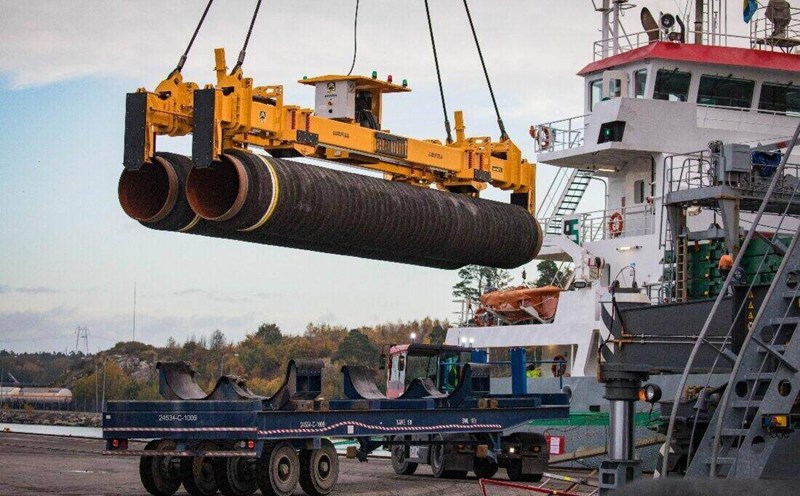The information was revealed by the CEO of Serbia's state gas company Srbijagas, Mr. Dusan Bajatovic. Currently, the new gas contract between Srbijagas and Gazprom has not been signed due to many legal and financial risks.
If you sign a 10-year contract, it means that during that time you have to receive and pay for the entire amount of gas committed. Meanwhile, there are still problems related to payment, financial sanctions and transportation," said Mr. Bajatovic.
Last month, Serbia extended its existing contract with Gazprom, which was scheduled to expire on May 31, until the end of September. At the time, Mr. Bajatovic said that Serbia had secured a supply of 6.1 million cubic meters of gas per day, for 290 euros/1,000 cubic meters. In May 2022, Serbia signed a 3-year contract with Gazprom to purchase a maximum of 2.2 billion cubic meters of gas per year.
Last month, the executive director of Srbijagas gas company said that Serbia is aiming to sign a new contract for at least 3 years. Meanwhile, in early May, he revealed that Serbia wanted a 10-year deal with Gazprom, with an output of 2.5 billion cubic meters of gas/year.
Serbia has been a candidate country to join the European Union (EU) since 2012 but is still looking to secure Russian gas supplies in the context of the EU's efforts to end energy imports from Moscow.
Last week, the European Commission proposed banning imports of Russian gas into the EU from the end of 2027. European Commission spokeswoman Anna-Kaisa Itkonen said the ban does not apply to third countries, so Serbia can continue to import Russian gas for domestic needs. However, any gas flow through Serbia to EU member states will have to be carefully reviewed to ensure compliance with the new regulations.
Serbia currently receives Russian gas via the TurkStream gas pipeline, which passes through Turkey and Bulgaria. The country also imports an additional 400 million cubic meters of gas from Azerbaijan via the gas pipeline connecting Serbia and Bulgaria.
It is expected that in 2025, Serbia will consume about 2.7 billion cubic meters of gas, of which more than 90% is imported gas.
In addition to the new gas contract with Gazprom, Dusan Bajatovic added that in June, the Serbian government approved a gas supply backup plan. Srbijagas plays a key role in implementing this plan.
The company is planning to build a new state gas storage facility in Tilva, near the capital Belgrade, with an investment capital of around 350 to 500 million euros.
Regarding the risk of US sanctions against Serbia's largest oil and gas company NIS, the leader of Srbijagas said: "The sanctions may be postponed for another 2-3 months. If internal problems in the NIS are resolved smoothly, we can propose that the US remove the company from the sanctions list. But if NIS does not work, we will not be able to maintain supply to the market. At that time, supply will decrease and prices will certainly increase".










